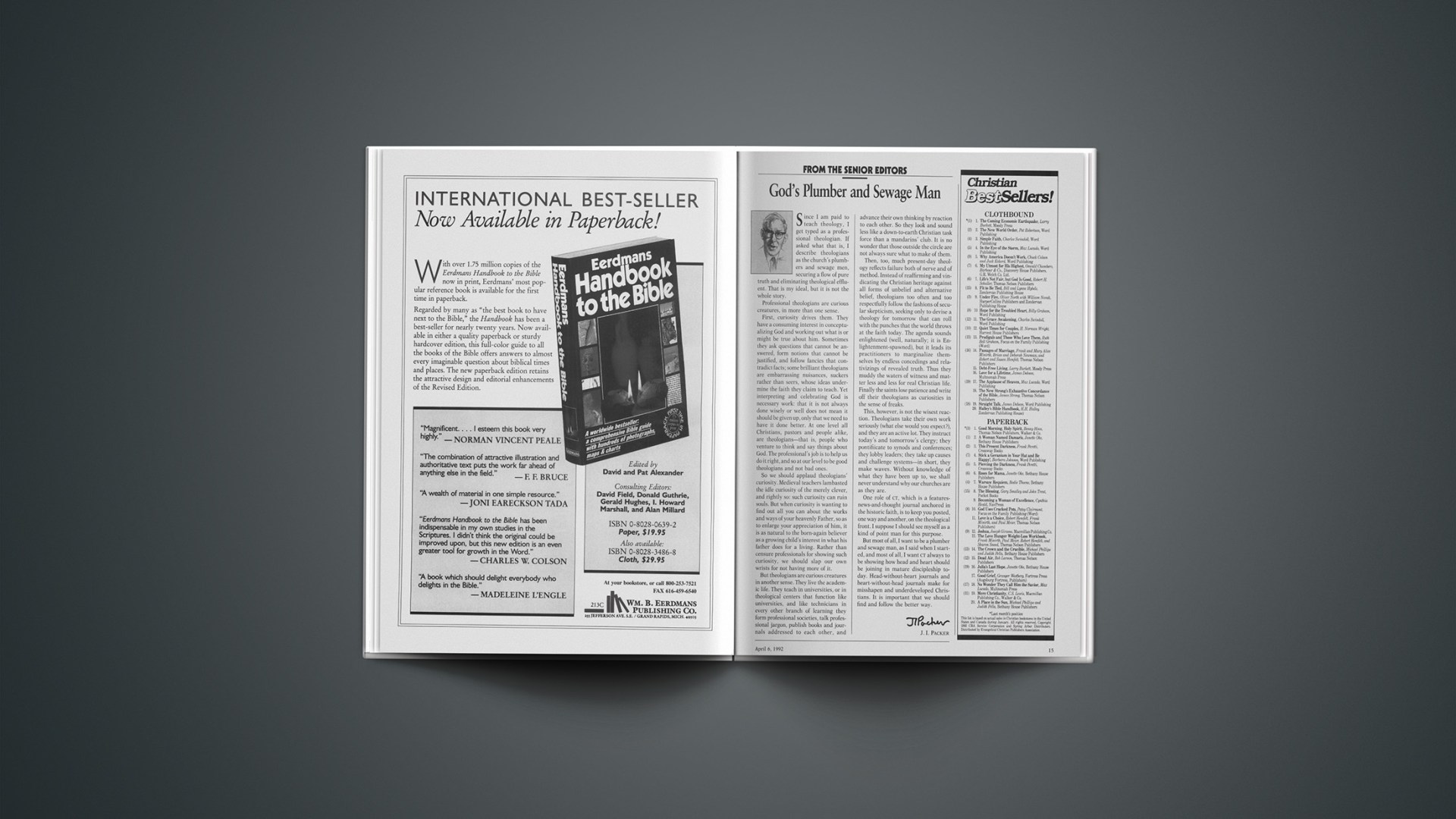Since I am paid to teach theology, I get typed as a professional theologian. If asked what that is, I describe theologians as the church’s plumbers and sewage men, securing a flow of pure truth and eliminating theological effluent. That is my ideal, but it is not the whole story.
Professional theologians are curious creatures, in more than one sense.
First, curiosity drives them. They have a consuming interest in conceptualizing God and working out what is or might be true about him. Sometimes they ask questions that cannot be answered, form notions that cannot be justified, and follow fancies that contradict facts; some brilliant theologians are embarrassing nuisances, suckers rather than seers, whose ideas undermine the faith they claim to teach. Yet interpreting and celebrating God is necessary work: that it is not always done wisely or well does not mean it should be given up, only that we need to have it done better. At one level all Christians, pastors and people alike, are theologians—that is, people who venture to think and say things about God. The professional’s job is to help us do it right, and so at our level to be good theologians and not bad ones.
So we should applaud theologians’ curiosity. Medieval teachers lambasted the idle curiosity of the merely clever, and rightly so: such curiosity can ruin souls. But when curiosity is wanting to find out all you can about the works and ways of your heavenly Father, so as to enlarge your appreciation of him, it is as natural to the born-again believer as a growing child’s interest in what his father does for a living. Rather than censure professionals for showing such curiosity, we should slap our own wrists for not having more of it.
But theologians are curious creatures in another sense. They live the academic life. They teach in universities, or in theological centers that function like universities, and like technicians in every other branch of learning they form professional societies, talk professional jargon, publish books and journals addressed to each other, and advance their own thinking by reaction to each other. So they look and sound less like a down-to-earth Christian task force than a mandarins’ club. It is no wonder that those outside the circle are not always sure what to make of them.
Then, too, much present-day theology reflects failure both of nerve and of method. Instead of reaffirming and vindicating the Christian heritage against all forms of unbelief and alternative belief, theologians too often and too respectfully follow the fashions of secular skepticism, seeking only to devise a theology for tomorrow that can roll with the punches that the world throws at the faith today. The agenda sounds enlightened (well, naturally; it is Enlightenment-spawned), but it leads its practitioners to marginalize themselves by endless concedings and relativizings of revealed truth. Thus they muddy the waters of witness and matter less and less for real Christian life. Finally the saints lose patience and write off their theologians as curiosities in the sense of freaks.
This, however, is not the wisest reaction. Theologians take their own work seriously (what else would you expect?), and they are an active lot. They instruct today’s and tomorrow’s clergy; they pontifiicate to synods and conferences; they lobby leaders; they take up causes and challenge systems—in short, they make waves. Without knowledge of what they have been up to, we shall never understand why our churches are as they are.
One role of CT, which is a features-news-and-thought journal anchored in the historic faith, is to keep you posted, one way and another, on the theological front. I suppose I should see myself as a kind of point man for this purpose.
But most of all, I want to be a plumber and sewage man, as I said when I started, and most of all, I want CT always to be showing how head and heart should be joining in mature discipleship today. Head-without-heart journals and heart-without-head journals make for misshapen and underdeveloped Christians. It is important that we should find and follow the better way.










